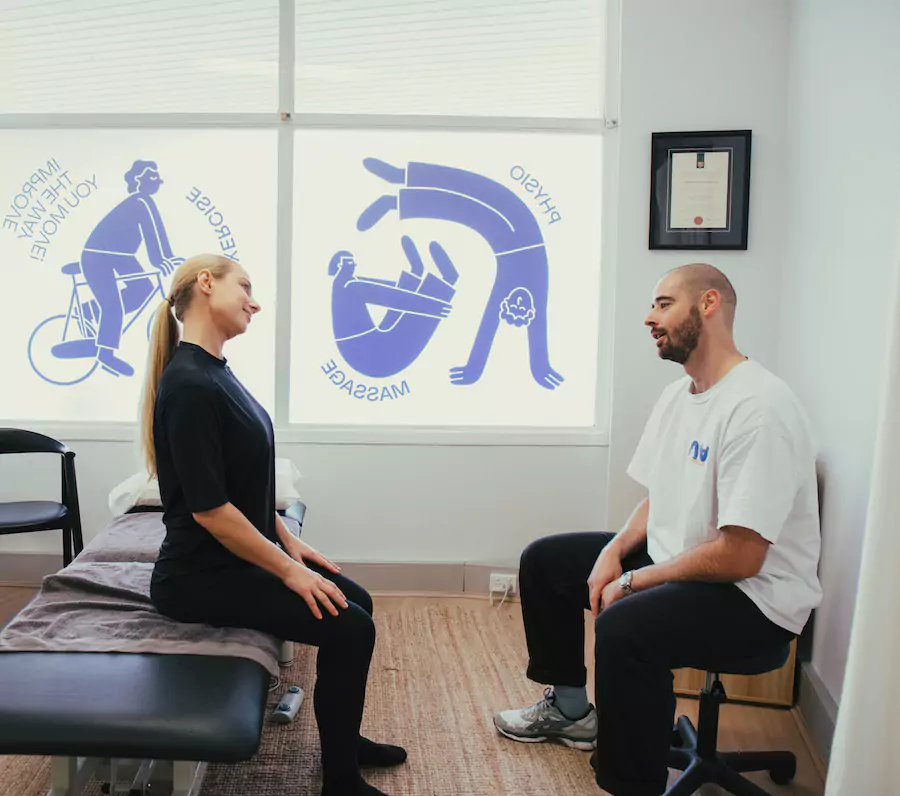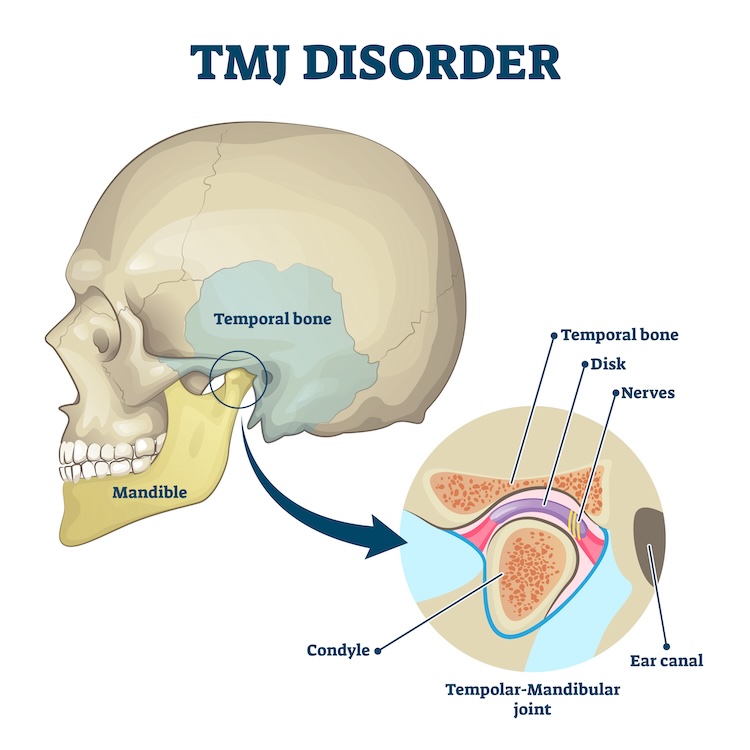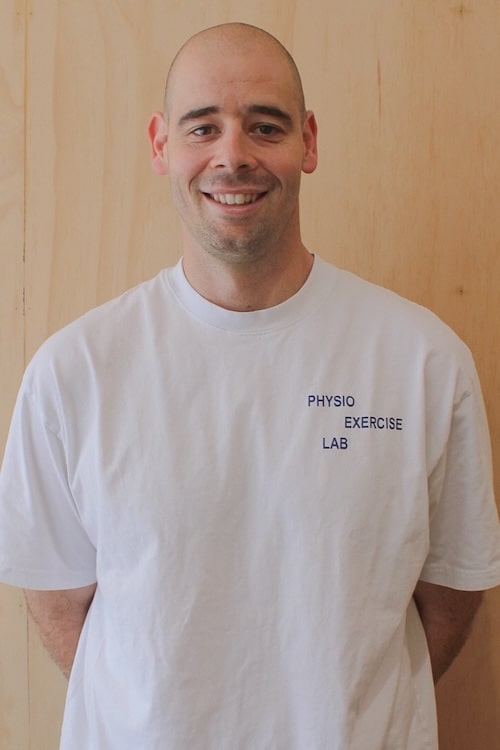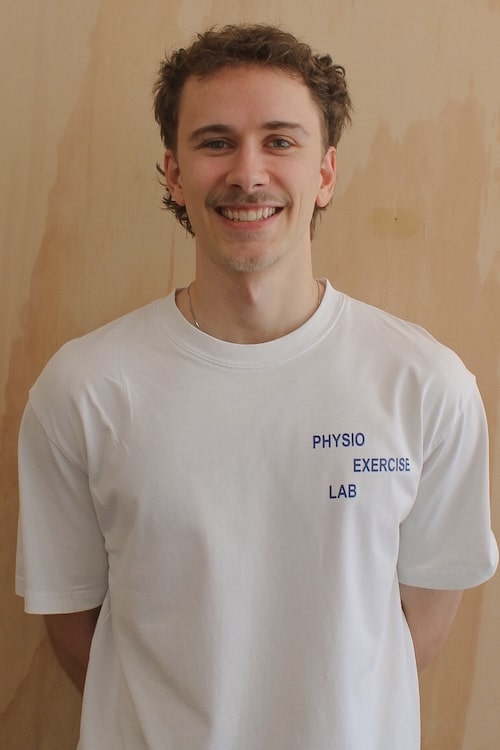Home » Physiotherapy » TMJ Physio
Book an appointment with an expert TMJ physio in Perth online or over the phone at 0493 112 916.

James Fannon is a highly experienced TMJ physio with expertise in TMJ dysfunction, jaw pain, and musculoskeletal rehabilitation. He applies evidence-based techniques to restore jaw function, reduce pain, and address related issues such as headaches and neck tension.
Using a comprehensive approach, James combines hands-on therapy, movement retraining, and rehabilitation exercises to deliver targeted, lasting relief, helping patients regain comfort and function.
To book an appointment with James, you can click the button below to book online or call our clinic at 0493 112 916.

For complex cases, we adopt a multi-disciplinary approach, collaborating with dentists, osteopaths, and medical professionals. This includes occlusal splinting for teeth grinding, sleep medicine referrals, Muscle Relaxant Injection Therapy (MRIT) for severe pain, and Orofacial Myofunctional Therapy (OMT) to enhance breathing, chewing, and swallowing. Our integrated strategy ensures lasting relief and improved function.

TMJ disorders (TMD) encompass a range of conditions affecting the jaw joint, surrounding muscles, and associated structures, leading to various symptoms such as:
Early treatment prevents worsening pain and dysfunction.
TMJ disorders can develop from various factors affecting the jaw joint, muscles, and surrounding structures. Common causes include:
Identifying the root cause is key to effective treatment and long-term relief.


Director & Senior Physiotherapist
James started Physio and Exercise Lab after many years working in private practice; gaining experience in a vast range of sports and musculoskeletal injuries, post-operative orthopaedic rehabilitation, and hydrotherapy. He enjoys treating a variety of conditions coming through the clinic and is skilled in dealing with neck and; back pain, upper and lower limb injuries, vertigo and concussion, functional gym-based strengthening, as well as exercise/load prescription and training planning.

Physiotherapist
Kade has joined Physio and Exercise Lab after working at Albany Health Campus as an inpatient and outpatient Physiotherapist. Whilst working in Albany Kade developed a passion for treating patients with musculoskeletal and neurological deficits and decided to move back to Perth to pursue a career in private practice physiotherapy. Through his time at Albany Health Campus, Kade gained experience dealing in pre and post-operative rehabilitation, and is skilled in treating neck and back, as well as upper and lower limb musculoskeletal conditions.
TMJ physio is a specialised form of physiotherapy focused on treating disorders of the temporomandibular joint (TMJ), which connects your jaw to your skull. This therapy aims to relieve pain, improve jaw movement, and address underlying issues contributing to TMJ dysfunction, such as muscle tension or joint misalignment.
TMJ stands for the temporomandibular joint, which connects the jawbone to the skull and enables movement for speaking, chewing, and yawning.
TMJ dysfunction (TMD) refers to issues affecting the jaw joint and surrounding muscles, causing pain, stiffness, and movement restrictions.
TMJ symptoms can often be effectively managed with physiotherapy, including manual therapy, exercises, and posture correction, but there is no instant cure.
TMJ issues can last weeks to months, depending on severity. Physiotherapy can help speed up recovery and prevent long-term dysfunction.
Pain relief includes jaw exercises, soft tissue release, posture correction, and stress management; all key components of physiotherapy treatment.
Yes, TMJ dysfunction can lead to tension headaches due to muscle strain in the jaw, face, and neck. Physiotherapy helps by relieving muscle tightness and improving jaw function.
Mild cases may improve over time, but persistent TMJ issues often require physiotherapy to address the underlying cause and prevent recurrence.
Self-care includes jaw relaxation techniques, heat/cold therapy, gentle stretching, and avoiding hard foods, but professional treatment is recommended for lasting relief.
We begin with a comprehensive evaluation, involving a detailed history and physical assessment. Following this, we provide a clear diagnosis for your condition. Hands-on treatment commences as part of our approach. You’ll also receive a comprehensive management plan, which includes prescribed exercises and guidance on the recommended frequency and duration of your treatment.
Your second consultation, scheduled shortly after the initial visit, offers an opportunity for feedback and questions. A streamlined re-evaluation is conducted through a physical assessment, allowing you to experience treatment benefits. Subsequent consultations are geared towards supporting your recovery and achieving optimal outcomes for your pain or injury.
The time frame for improvement varies depending on the individual’s condition and response to therapy. Some may notice improvements within a few sessions, while others might need a longer period of consistent therapy.
Wearing comfortable clothing and shoes that allow for movement is recommended. Review our guide on what to what to wear to a physio appointment for more specific recommendations.
It’s also helpful to bring a list of your current medications and a summary of your medical history, including any diagnostic tests related to your vestibular condition.
There are no cancellation fees or 24-hour notice requirements. Just give us a call if you can’t make it to your appointment.
A doctor’s referral is typically not required to visit us unless your condition is associated with Workers Compensation, Motor Vehicle Injury, Veterans Affairs, or a Medicare Enhanced Primary Care plan. In most cases, you can directly schedule an appointment as all our physiotherapists are primary contact practitioners, capable of providing comprehensive care without the need for a referral.
To access physiotherapy services through Medicare, you must have a referral from your GP under the Chronic Disease Management Plan, often referred to as an Enhanced Primary Care Plan (EPC). This plan is required for Medicare coverage when seeing a physiotherapist.
For more information on eligibility and how to claim, read our blog explaining how medicare can be used for physio.
As a person seeking healthcare in WA, you have the right to access, safety, respect, partnership, information, privacy, and the ability to provide feedback. For more in-depth information relating to your rights, review the Australian Charter of Healthcare Rights.
We prioritise your privacy. Our strict privacy policy ensures the confidentiality of your personal information, using it solely for your healthcare. If you have any privacy concerns or questions, please reach out, and we’ll address them promptly. Your trust is crucial to us.
Review our privacy policy here.
If you have any questions relating to our services or any feedback for our team, please get in touch with us via phone, email, or contact form.